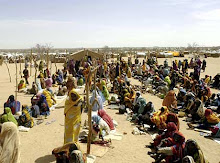The request from the International Criminal Court prosecutor for an arrest warrant for Omar al-Bashir, Sudan’s president, caused much hand-wringing by diplomats and others who say the search for justice will derail peace negotiations or endanger humanitarian relief workers. Fearing that the crisis in Darfur will worsen if the prosecutor is allowed to proceed, they have launched an ill-considered campaign at the United Nations Security Council to delay the court’s proceedings, perhaps for a year. The very nations that created the ICC appear to be afraid to let it do its work. A vote for deferral might come as early as next month.
For me, this is familiar terrain. When Radovan Karadzic and General Ratko Mladic, the Bosnian Serb leaders, were indicted by the Yugoslav tribunal in July 1995 for orchestrating atrocities in Bosnia, the media and many diplomats lamented that we would be unable to negotiate peace for Bosnia. Less than five months later, an agreement was reached in Dayton to end the war.
What had seemed an insurmountable obstacle turned out to be an unexpected opportunity. Before the indictments, we had already decided to marginalise Gen Mladic and Mr Karadzic and force Slobodan Milosevic, the Serbian president, to take full responsibility for the war. Our negotiating team met them only once – in a hunting villa just outside Belgrade in September 1995 – but only with a prior understanding that Mr Milosevic would be responsible for their conduct, and only to lift the three-year siege of Sarajevo, which we accomplished that night. Later, when Mr Milosevic insisted that to achieve peace the two men had to participate in negotiations, I offered to arrest them personally if they set foot in the US. Read more >>>>>>>>>>>
Wednesday, September 24, 2008
Subscribe to:
Post Comments (Atom)

No comments:
Post a Comment